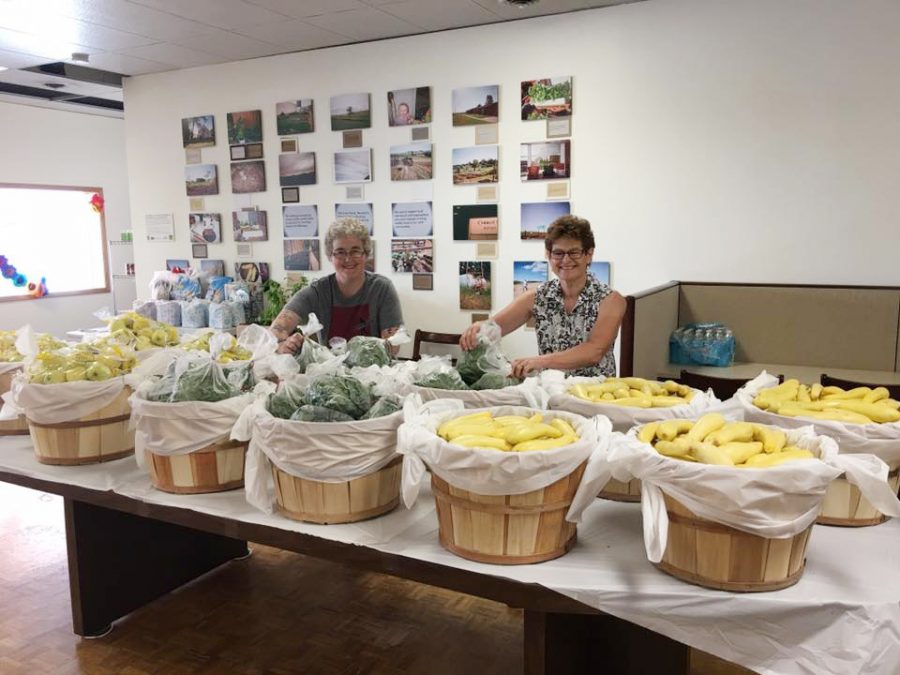Food bank services hindered
Lower population in summer means few volunteers for meals
Monica Hardie and Gail McNeilly, lead volunteers at the Colfax Food Pantry, prepare donated food for distribution.
June 27, 2019
Food insecurity programs are facing barriers this summer that prevent children and families from receiving food in Whitman County.
Paige Collins, executive director for the Council on Aging and Human Services, said the biggest challenge is to make reliable meal programs and food pantries available to everyone, not just children.
“Transportation is still a challenge for families to be able to get to places that would give them the food that they need,” she said.
Mary Collins, unrelated to Paige, president of the League of Women Voters in Pullman, said young parents struggle to financially support their family because of the unequal distribution of wealth, which can affect children as they grow up.
Paige said they are also noticing a lack of volunteers.
“There just is not that group of people that are able to be available during the week every day at noon,” she said. “The elderly folks who have all the time are not able to physically do that.”
Mary said she volunteers some of her time at the food pantry alongside others, but it becomes difficult to have the flexibility to help at the pantry when her schedule is full.
The pantry has advertised through churches, libraries and networking to get more volunteers to help around the county, she said.
Paige said there are a lot of consistent volunteers who frequently help around the food pantries but they get overwhelmed because of the lack of new help.
Summer is harder because WSU students go back home and pantries lose the help they need, she said.
Food insecurity among children in particular is a much bigger issue in the summer without the help of extra volunteers, Paige said.
She said not having enough food, or enough healthy food, affects children in every way.
“They cannot concentrate as well, they feel cranky and feel angry,” Paige said. “They are probably acting out because they do not feel good.”
Mary said other food pantries would get students through the Center for Civic Engagement to assist them.
“The Garfield community would not have a pantry if it was not for the students,” she said.
Paige said these are the same families who cannot afford summer camps, or places where their children can get food.
“There is not an official movement to make sure the [children] that normally would be on the free or reduced lunches at school are getting any during the summer,” she said.
The summer feeding programs that are available only service certain towns, like Albion and Pullman, Paige said.
Mary said the Albion summer lunch programs feed about 35 and 40 children a day.
Most of the families have jobs and receiving free lunch will help them to make fewer financial sacrifices, she said.
“We always feel that we never have any healthy food in the county, ever,” Paige said. “The summer becomes super acute.”
Mary said any proportion of the community that is suffering does impact the whole community.

















